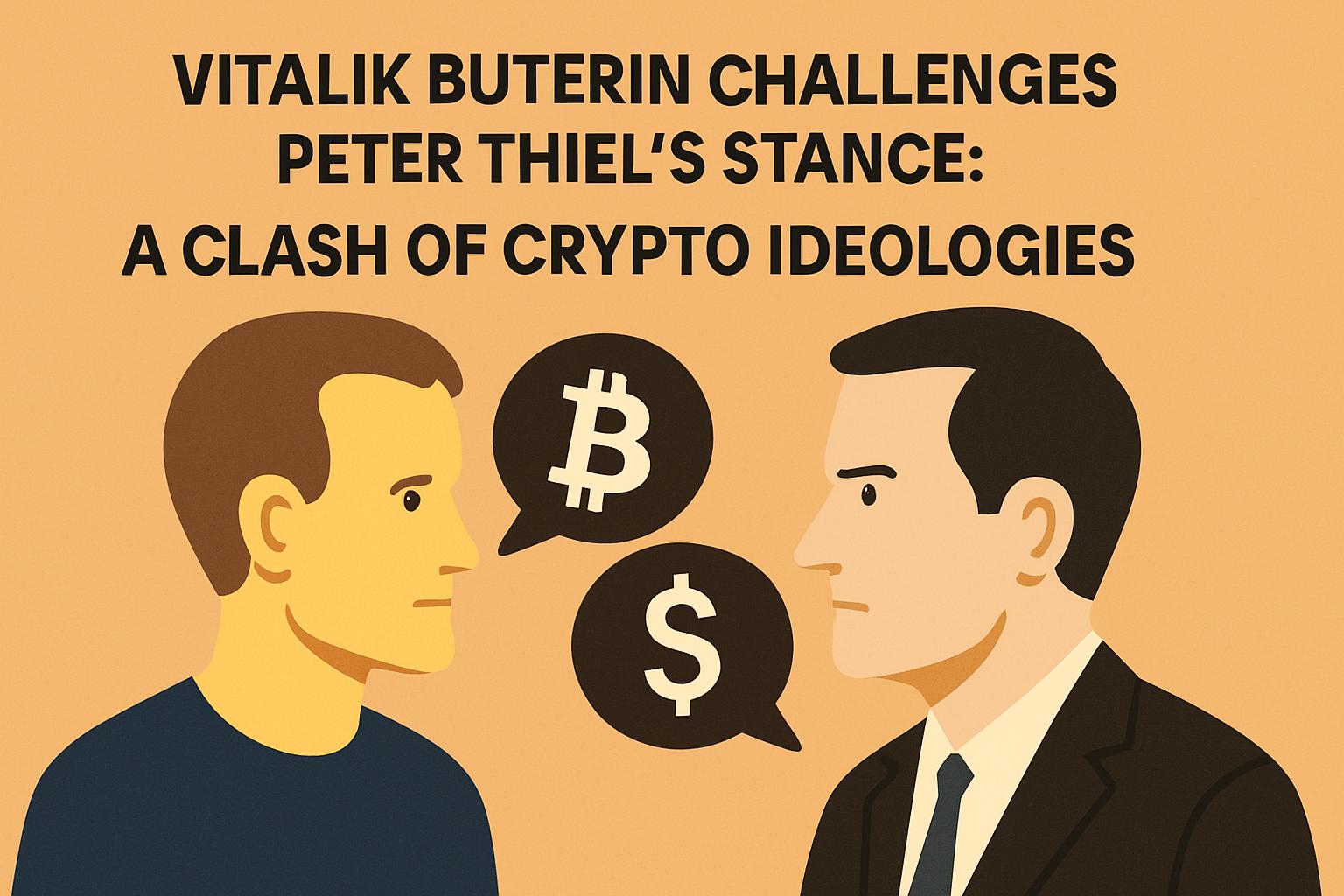Vitalik Buterin, the co-founder of Ethereum, recently reignited a debate that strikes at the heart of crypto discourse: the divergence between Silicon Valley heavyweight Peter Thiel’s perspective and the core principles of the cypherpunk movement. Drawing from Thiel’s 2007 essay, titled The Straussian Moment, Vitalik highlighted a significant philosophical rift within the tech and crypto communities.
Thiel’s Vision: Intelligence-Led Stability
Thiel’s writings, rooted in the teachings of political philosopher Leo Strauss, argue for a society sustained not solely by democratic means, but through the pivotal role of intelligence and surveillance agencies. Thiel articulates that a ‘just society’ requires a suspension of certain natural rights, suggesting that secret intelligence is essential. This approach leans towards a ‘pax Americana’, a global order maintained by elite coordination, at odds with transparent democratic structures.
In Thiel’s view, the protracted debates of democratic processes pale in comparison to the effectiveness of covert intelligence networks, such as Echelon, in securing global peace. This model champions a governance system steered by espionage and the elite, rather than by open, representative democracy.
Cypherpunk Ideals vs. Thiel’s Doctrine
The cypherpunk movement of the 1990s presents a starkly contrasting ideology. It advocates for individual privacy fortified by cryptographic technology, striving to:
- Protect personal freedoms from governmental and corporate surveillance
- Promote decentralized, transparent systems
- Challenge authoritarian control, reinforcing personal autonomy
Eric Hughes, a prominent figure in the cypherpunk realm, declared in his Cypherpunk’s Manifesto that privacy should not be granted by large entities, expecting a proactive creation of anonymous systems.
Vitalik’s Critique: Cypherpunk vs. Straussian
Vitalik Buterin’s critique stems from the need to distinguish between Thiel’s investment in crypto and his political philosophy. Despite Thiel’s extensive investments in Bitcoin and Web3 ventures via Founders Fund, Buterin underscores that Thiel’s ideology, rooted in elitism and state intelligence, fundamentally conflicts with the cypherpunk ethos of digital liberty and decentralization.
This ideological confrontation not only revisits the philosophical divide within the technology community but also emphasizes the critical discourse on privacy, power, and the future of digital societies. As crypto continues to evolve, the spectrum of beliefs within its community reminds us of the ongoing struggle between control and freedom.

![[News] Bitcoin at a Turning Point? 10x Research Signals a Bullish Macro Shift Ahead](https://cryptoexplores.com/wp-content/uploads/2025/06/new20250616.jpg)
![[News] Binance Lists $HOME, the Gas-Free, Bridge-Free All-in-One DeFi App](https://cryptoexplores.com/wp-content/uploads/2025/06/news20250617.jpg)